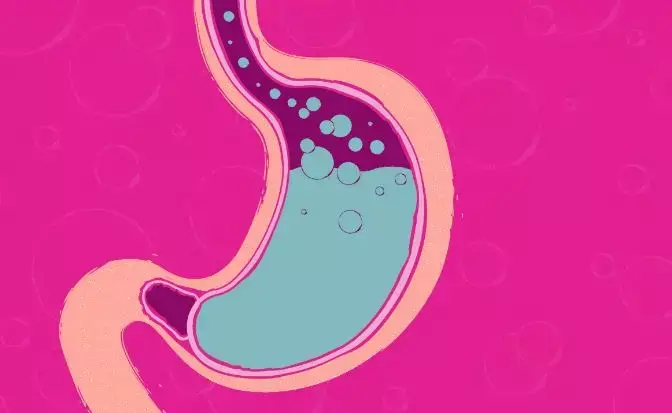- Home
- Medical news & Guidelines
- Anesthesiology
- Cardiology and CTVS
- Critical Care
- Dentistry
- Dermatology
- Diabetes and Endocrinology
- ENT
- Gastroenterology
- Medicine
- Nephrology
- Neurology
- Obstretics-Gynaecology
- Oncology
- Ophthalmology
- Orthopaedics
- Pediatrics-Neonatology
- Psychiatry
- Pulmonology
- Radiology
- Surgery
- Urology
- Laboratory Medicine
- Diet
- Nursing
- Paramedical
- Physiotherapy
- Health news
- Fact Check
- Bone Health Fact Check
- Brain Health Fact Check
- Cancer Related Fact Check
- Child Care Fact Check
- Dental and oral health fact check
- Diabetes and metabolic health fact check
- Diet and Nutrition Fact Check
- Eye and ENT Care Fact Check
- Fitness fact check
- Gut health fact check
- Heart health fact check
- Kidney health fact check
- Medical education fact check
- Men's health fact check
- Respiratory fact check
- Skin and hair care fact check
- Vaccine and Immunization fact check
- Women's health fact check
- AYUSH
- State News
- Andaman and Nicobar Islands
- Andhra Pradesh
- Arunachal Pradesh
- Assam
- Bihar
- Chandigarh
- Chattisgarh
- Dadra and Nagar Haveli
- Daman and Diu
- Delhi
- Goa
- Gujarat
- Haryana
- Himachal Pradesh
- Jammu & Kashmir
- Jharkhand
- Karnataka
- Kerala
- Ladakh
- Lakshadweep
- Madhya Pradesh
- Maharashtra
- Manipur
- Meghalaya
- Mizoram
- Nagaland
- Odisha
- Puducherry
- Punjab
- Rajasthan
- Sikkim
- Tamil Nadu
- Telangana
- Tripura
- Uttar Pradesh
- Uttrakhand
- West Bengal
- Medical Education
- Industry
Study finds mechanism of improvement of GERD by diaphragatic breathing

According to a recent study, Diaphragmatic Breathing reduces the number of postprandial reflux events pressure by increasing the difference between lower esophageal sphincter (LES) and gastric pressure in patients with upright GERD.The findings have recently been published in The American Journal of Gastroenterology.
Previous results have suggested that diaphragmatic breathing (DB) is effective in gastroesophageal reflux disease (GERD) but the mechanism of action and rigor of proof is lacking.
Researchers undertook this study to determine the effects of DB on reflux, lower esophageal sphincter (LES), and gastric pressures in patients with upright GERD and controls.
As for the study sample,Adult patients with pH proven upright GERD were studied. During a high-resolution impedance manometry, study patients received a standardized pH neutral refluxogenic meal followed by LES challenge maneuvers (Valsalva and abdominal hollowing) while randomized to DB . After that, patients underwent 48 hours of pH-impedance monitoring, with 50% randomization to postprandial DB during the second day.
On data analysis, the following facts emerged.
- On examining 23 patients and 10 controls, postprandial gastric pressure was found to be significantly higher in patients compared with that in controls (12 vs 7 mm Hg, P = 0.018).
- Valsalva maneuver produced reflux in 65.2% of patients compared with 44.4% of controls (P = 0.035).
- LES increased during the inspiratory portion of DB (42.2 vs 23.1 mm Hg, P < 0.001) in patients and healthy persons.
- Postprandial DB reduced the number of postprandial reflux events in patients (0.36 vs 2.60, P < 0.001) and healthy subjects (0.00 vs 1.75, P < 0.001) compared with observation.
- During 48-hour ambulatory study, DB reduced the reflux episodes on day 2 compared with observation on day 1 in both the patient and control groups (P = 0.049).
- In patients, comparing DB with sham, total acid exposure on day 2 was not different (10.2 ± 7.9 vs 9.4 ± 6.2, P = 0.804).
- In patients randomized to DB, esophageal acid exposure in a 2-hour window after the standardized meal on day 1 vs day 2 reduced from 11.8% ±6.4 to 5.2% ± 5.1, P = 0.015.
For full article follow the link: 10.14309/ajg.0000000000000913
Primary source: The American Journal of Gastroenterology
Dr Satabdi Saha (BDS, MDS) is a practicing pediatric dentist with a keen interest in new medical researches and updates. She has completed her BDS from North Bengal Dental College ,Darjeeling. Then she went on to secure an ALL INDIA NEET PG rank and completed her MDS from the first dental college in the country – Dr R. Ahmed Dental College and Hospital. She is currently attached to The Marwari Relief Society Hospital as a consultant along with private practice of 2 years. She has published scientific papers in national and international journals. Her strong passion of sharing knowledge with the medical fraternity has motivated her to be a part of Medical Dialogues.
Dr Kamal Kant Kohli-MBBS, DTCD- a chest specialist with more than 30 years of practice and a flair for writing clinical articles, Dr Kamal Kant Kohli joined Medical Dialogues as a Chief Editor of Medical News. Besides writing articles, as an editor, he proofreads and verifies all the medical content published on Medical Dialogues including those coming from journals, studies,medical conferences,guidelines etc. Email: drkohli@medicaldialogues.in. Contact no. 011-43720751


